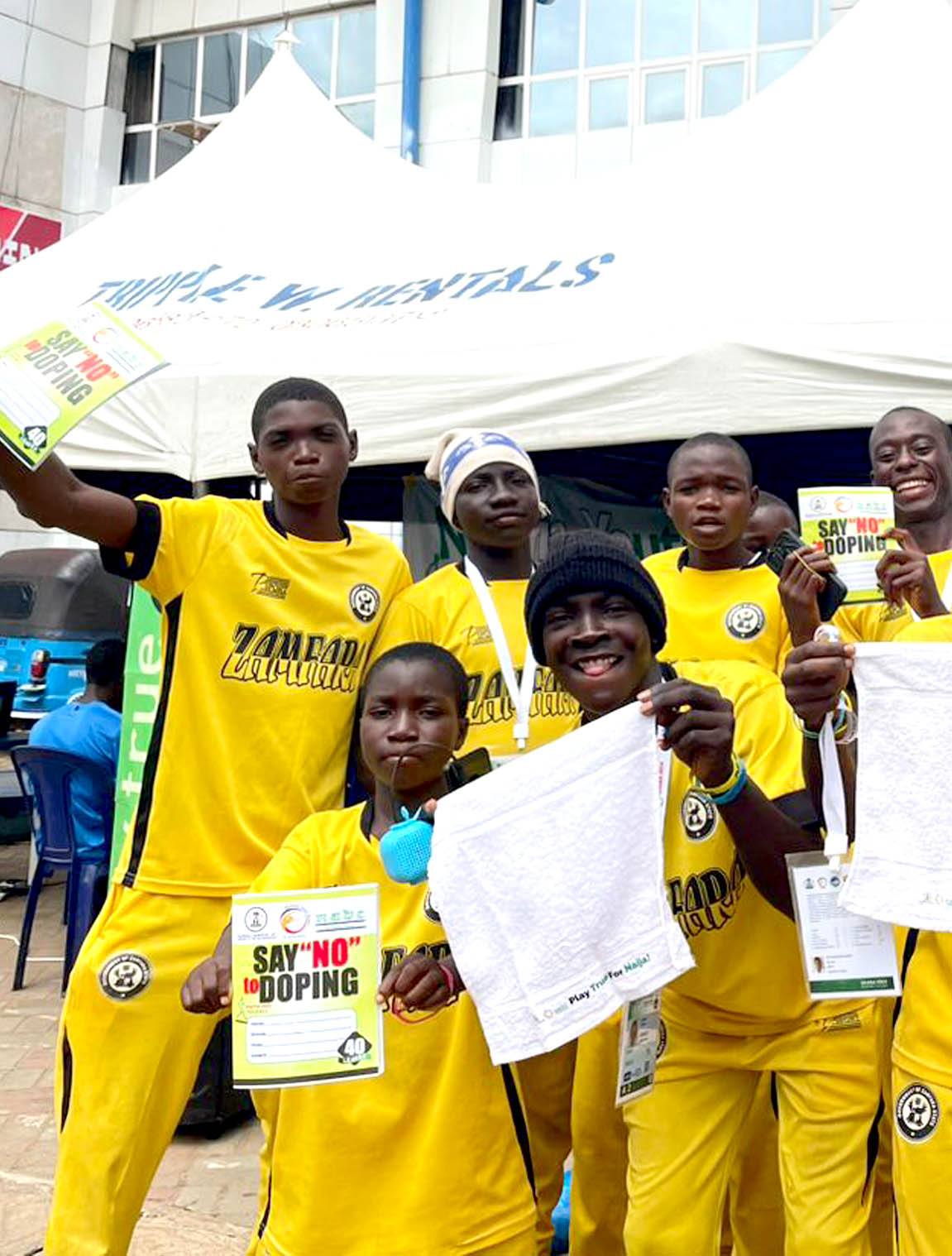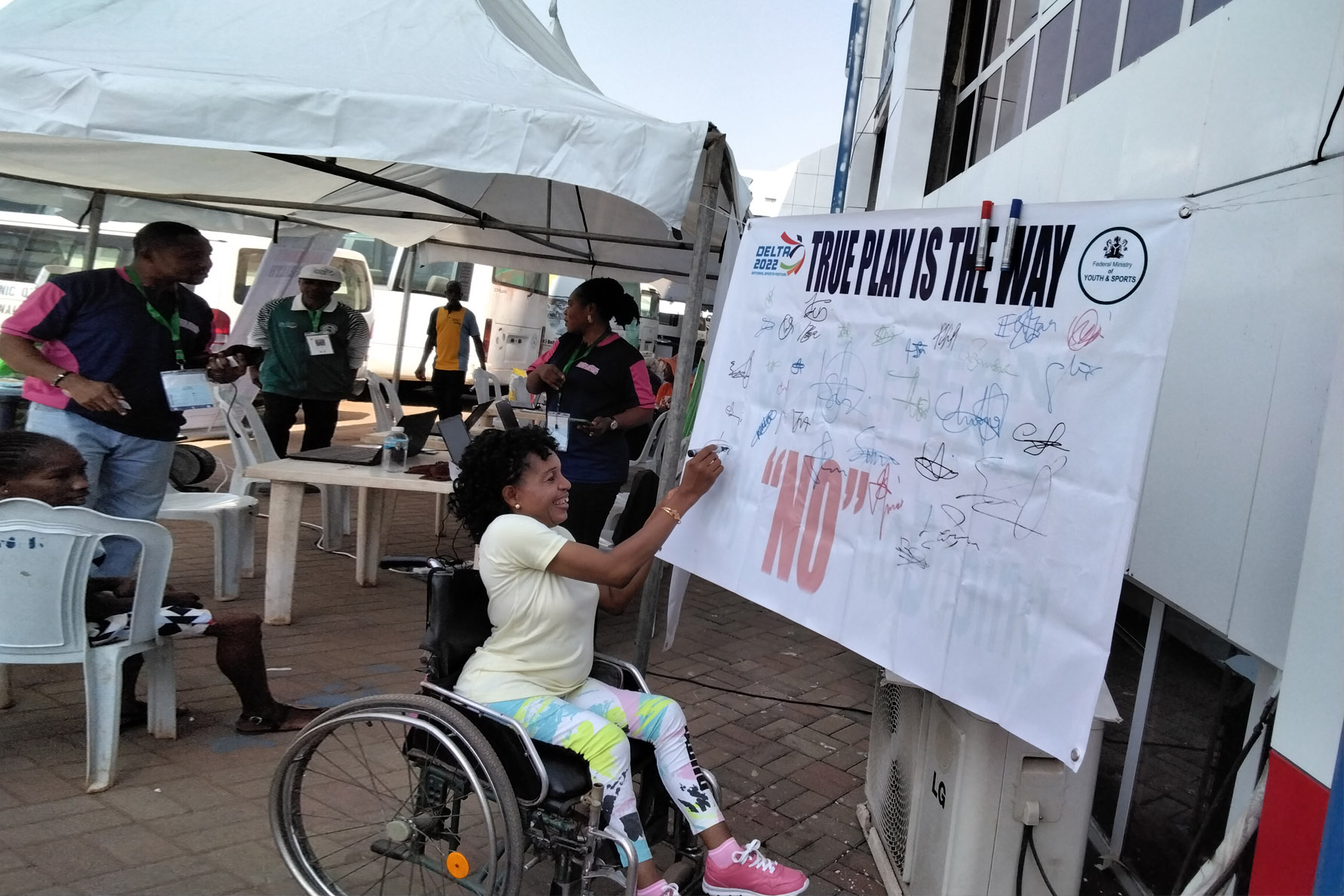Menu


Anti-Doping Education plays a pivotal role in promoting the value of ethics and fair play in sport, thereby protecting the true “spirit of the sport”. It is also about informing athletes, coaches and managers about the World Anti-Doping Code, how to compete clean and drug-free, the doping control process, their rights and responsibilities.
Education is especially important amongst younger athletes as they, too often, are lured into using ‘pills and potions’ (from supplements to illicit drugs) that offer quick fixes and false promises of efficacy, often at the cost of harming health, performance and getting banned from sport. While it is important to highlight the negative effects, it is also our duty to promote the use of sound and effective alternatives to support performance as well as the health and well-being of current and future generations of athletes.
Audience: Schools, Athletes / Teams, Coaches, Management, Parents, Health professionals, Tertiary education programmes. To book an Anti-Doping Talk / Workshop / Guest Lecturing click here
Education / Information booth at tournaments, athletic meets, swimming galas, training camps, sporting event expo’s (e.g. Comrades Marathon) and the like. To book an Anti-Doping Information Booth at your event click here
The principles and values associated with clean sports are essential to maintain the integrity of sports and to promote fair competition. The World Anti-Doping Code defines education as “the process of learning to instill values and develop behaviors that foster and protect the spirit of sport, and to prevent intentional and unintentional doping” The spirit of sport is the celebration of the human spirit, body, and mind. It is reflected in the values we find in and through sport, including:
NADC is actively fighting against doping in sports and working tirelessly to spread the values and principles of clean sports daily by educating athletes, coaches, support personnel, medical teams, national federations, they deliver a message of health and fair play. As an athlete, you also have a very important role to play in clean sports. First of all, by refusing to dope yourself and also spreading your knowledge of clean sports to others helps keep sports clean. It is also your role to report doping if you are witnessing it: you can help protect an athlete who is taking a prohibited substance as well as your sport by upholding the values of clean sports.
Athletes are entitled to have a representative (Coach, medical personnel or any other official) of their choice present throughout the doping control procedures except during sample collection
Before arriving at the Doping Control Station, and with the approval of the Doping Control Officer (DCO) or Chaperone, and under the supervision of an official Chaperone, the athlete may:
The athlete has up to ONE HOUR after notification to report at the Doping Control Station if he/she has to perform any of the above.
The athlete is entitled to designate an attendant to fill in the doping control form if:
Produce appropriate identification.
Remain within direct observation of the DCO/chaperone at all times from the point of notification until the completion of the sample collection process.
Comply with sample collection procedures (failure to do so may constitute an anti-doping rule violation).
Say “NO” to Doping
Keep your sport clean
PLAY TRUE 4 NAIJA
Strict liability rule
An athlete runs very high risks by consuming doping substances or by using prohibited methods. This may result in very severe health but also sporting, financial, legal and social consequences.
Physical health: depending on the substance, the dosage and the consumption frequency, doping products may have particularly negative side (adverse) effects on health. Some damages to the body are irreversible and as such may lead that the athlete’s life to be in great danger.
Some physical and mental health consequences (adverse effects) are listed below:
Anabolic steroids – Adverse effects
Peptide hormones, growth factors and related substances – Adverse effects
Beta 2-agonist– Adverse effects
Diuretics and other masking agents– Adverse effects
Stimulants– Adverse effects
Narcotics– Adverse effectss
Cannabis– Adverse effects
Glucocorticoidss– Adverse effects
Enhancement of Oxygen Transfer– Adverse effects
Psychological health consequences: some doping substances may not be detrimental to the body but exercise an impact on mental health. It has been scientifically evidenced that anxiety, obsessive disorders or psychosis are direct consequences from doping.
Social consequences: The existence of an athlete who was held guilty for doping may be completely disrupted. Indeed, doping may represent a danger for the health, but it may also be prejudicial to the fame, respect and creditworthiness. Even in the future negative findings are regularly questioned by the media and the entourage. The poor image will remain in the collective unconscious and the athlete could remain isolated.
Financial consequences: As regards high-performance sport, an infringement of anti-doping rules often leads to a loss of income, the reimbursement of prize moneys and of the sponsorship money. An athlete suspended for several years, or even life-banned, cannot earn his/her living as usual and can even be forced into debt to live on a day-to-day basis.
Sporting consequences: A doping violation may mean loss of results, rankings, medals and qualification places at events. It could also have an impact on members of a team causing medals to be lost. An athlete found culpable of any ADRV may be suspended, i.e. he/she may not take part in sport competition or in organized training sessions.
Help us promote clean sports and a doping-free culture amongst Nigeria athletes.


Complete the form below to report a violation.

Anti-Doping Education plays a pivotal role in promoting the value of ethics and fair play in sport, thereby protecting the true “spirit of the sport”.
Subscribe to newsletter
© Copyright 2025, All Rights Reserved by Nigeria Anti-Doping Organization.